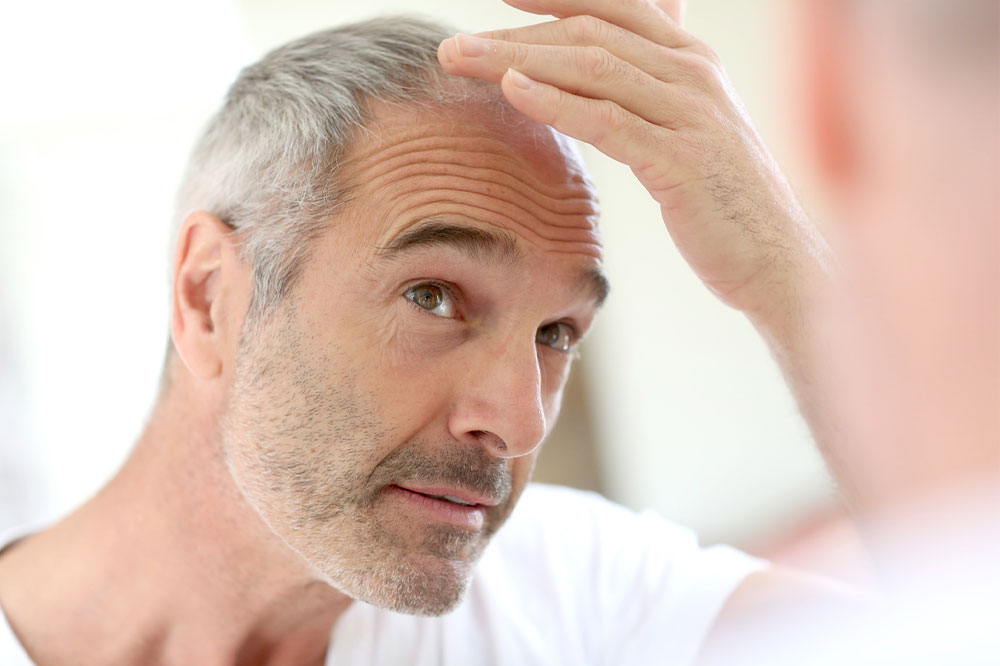8 Medical Conditions That May Cause Severe Hair Loss

Hair loss or alopecia is a dreaded condition most commonly associated with middle-aged men, but unfortunately, it may even occur in young children. When you lose 50 to 100 hair each day, you would think it is not that big a deal. However, sometimes you may lose more, or perhaps new hair does not replace lost hair quickly. So let’s learn about hair loss and the medical conditions that trigger it.
Signs to look out for
Sometimes it can be tricky to differentiate regular hair loss from severe since even routine combing is bound to produce a handful of strands. For example, alopecia has the following symptoms – widening patches of scaling, receding hairline, loose hair, bald patches, and pain or itching on the scalp. Thinning of hair can take any form and sometimes may not appear on your head. Or, your drains may get clogged more, and perhaps your brush is full of hair if you suffer from alopecia.
Medical conditions that trigger severe hair loss
Most people do not talk about hair when they talk about their health. It is unfortunate since hair fall coincides with several health conditions. The following are some ailments known to trigger severe or noticeable hair loss.
Alopecia areata
The first condition that triggers severe alopecia is an autoimmune condition. Some researchers believe this illness which triggers unpredictable hair loss, runs in families. It is, unfortunately, quite common. However, the silver lining is that in most cases, only a tiny patch of hair, about the size of a quarter, falls out. If there is severe hair loss all over the scalp, it is called alopecia totalis. And if hair loss is all over the body, it is called alopecia universalis.
Androgenic alopecia
If you know a little Greek, you know that andros means man, but androgenic alopecia is hereditary hair loss that occurs in men and women. It may occur as early as puberty in some people but is typically noticed only in middle age, after age 65. In men, it is likely to occur progressively above the temples, and thinning starts at the crown, creating an M shape. Androgenic alopecia is the most common medical cause of hair loss, affecting about 50% of the world’s population.
Tinea capitis
Another medical condition that can cause severe hair loss is ringworm of the scalp or Tinea capitis. The regions affected on the scalp and hair shaft tend to become scaly and itchy. Unless treated early on, the size of the patch increases and tends to fill with pus. These patches are known as kerion and may cause relatively permanent scarring. There may be coloring on the scalp, and tender to the touch. However, the good news is it is treatable with simple antifungal cream.
Syphilis
A bacterial infection that is sexually transmitted and can cause severe and noticeable hair loss is syphilis. Though the first symptoms are bodily sores, secondary syphilis, occurring a few weeks after the infection, can be accompanied by hair loss. This shedding occurs in a “moth-eaten” pattern – that is, in small patches across the scalp. It does not leave scars on the head and can be reversed with treatment. Instead, the hair returns to normal within three months of antibiotic treatment.
Cancer
Cancer treatments are a boon and can save many lives, but they have several side effects. There is, of course, nausea, dizziness, and hair loss. Typically, radiation therapy to the upper body or chemotherapy causes hair loss on parts or the entire scalp within a few weeks after the treatments start. Wearing cooling caps during the sessions can prevent hair loss. But also, it is essential to remember that hair regrowth tends to begin within a few months of completing the chemotherapy or radiation. Dermatologists typically work with your oncologists to prescribe to speed up hair growth.
Telogen effluvium
Telogen effluvium refers to sudden hair loss that results from emotional or physical shock or a traumatic event. Extreme stress or serious illness is a common cause of severe hair loss. It may result from hormonal changes with pregnancy, postpartum, menopause, and PCOS. Additionally, malnutrition, endocrine disorders, acute infections, surgery, and particularly anesthesia can result in severe hair loss. Drugs like anticoagulants, anticonvulsants, oral retinoids, and beta-blockers are peculiar reasons for losing hair. The good news is that hair tends to grow back when the underlying problem is treated.
Iron Deficiency Anemia
A lack of sufficient iron in the body reduces the number of healthy red blood cells. It means that oxygen transport in the body is impaired, and most organs suffer. Iron is absorbed from non-essential organs like the hair follicles when it is less in the body. And it leads to dry and brittle hair that breaks easily. Thus, this medical condition can seriously impair your health and cause severe hair loss. So, for example, if your thinning hair co-occurs with tiredness and heart palpitations, you might want to ask your doctor for iron tablets.
Thyroid conditions
The thyroid gland is responsible for metabolism, but when it is overactive or underactive, it can cause hair loss. This type of hair loss can be accompanied by changes in hair texture and even thinning of body hair. Often, thyroid problems result from autoimmune reactions and may accompany alopecia areata. Some causes of thyroid abnormalities include Graves’ disease or Hashimoto’s disease. You can rectify this health imbalance, but most thyroid treatments take a few months to show positive changes.
Conclusion
Severe hair loss can be gradual or abrupt and temporary or permanent, depending on the cause. Whatever the reason, do not pull your hair out worrying, but give yourself and your scalp some time. Be kind to hair that is new in texture or slow to grow because it could take quite a while to return to normal.







